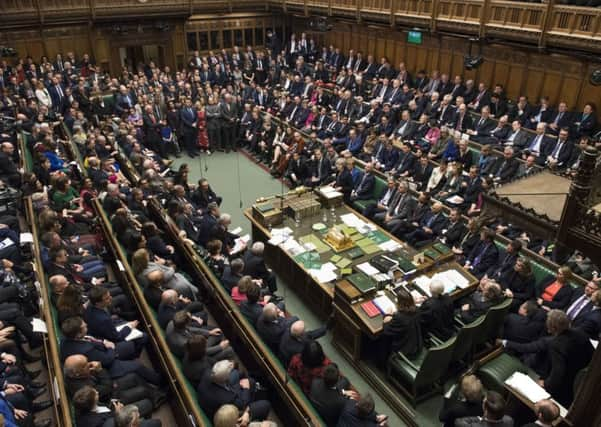Why Norway model could be the winner if Theresa May loses her meaningful vote on Brexit - Yorkshire Post letters


AMID the drama of PM Theresa May and Attorney General Geoffrey Cox attempting to persuade the EU to make concessions they have repeatedly affirmed are not available, it is clear that the votes in Parliament today and tomorrow will not resolve what happens next.
Assuming May’s deal is voted down again, there will then be a vote to rule out no deal. If that passes, the PM may bring her deal back for a third time, hoping that ERG members will support it rather than risk no Brexit.
Advertisement
Hide AdAdvertisement
Hide AdIf the votes go as expected, a further vote may call for an extension of the Article 50 process. Parliamentary support does not guarantee the extension, because it requires EU27 majority support within a tight time frame.
If Article 50 is extended, the UK remains a member of the EU, but only for a couple of months. Any longer and the UK would be legally obliged to hold elections to the European Parliament in May. This prospect seems remote indeed.
An extension to Article 50 creates three possible outcomes. First, the Prime Minister could bring her Withdrawal Agreement back yet again with still more time to persuade MPs to back it. Surely such a move would invite only ridicule.
Secondly, the Government could repeal Article 50 altogether and we remain in the European Union. This seems most unlikely as both main parties have committed to Brexit.
Advertisement
Hide AdAdvertisement
Hide AdSo, the most likely outcome is the third possibility: during a short extension of Article 50, Parliament will agree a version of the Norway position – we leave the EU but remain in the Customs Union and Single Market. This provides for greater UK control of agriculture and fisheries, but means that free movement remains.
Industry and businesses throughout the land will breathe a sigh of relief. Of critical importance is that the Belfast Agreement would not be torn up, so the fragile peace in Northern Ireland would hold and normality can continue on both sides of the Irish border.
Such an outcome is much closer to what the Leave campaign promised two years ago: frictionless trade and access to the single market.
As the Institute for Government has made clear, it would also entail more-or-less permanent negotiation with the EU, as that is precisely the position in which Norway and Switzerland have found themselves since the Single Market was created in 1992.